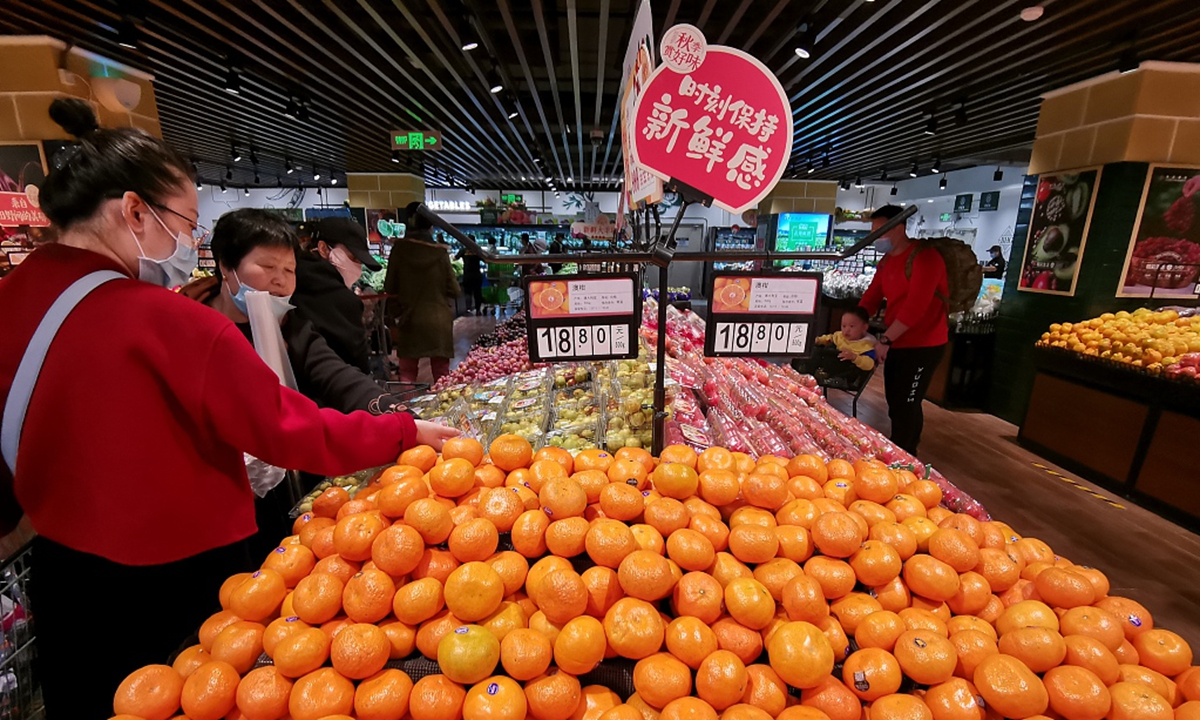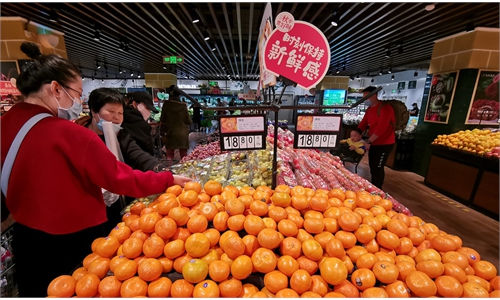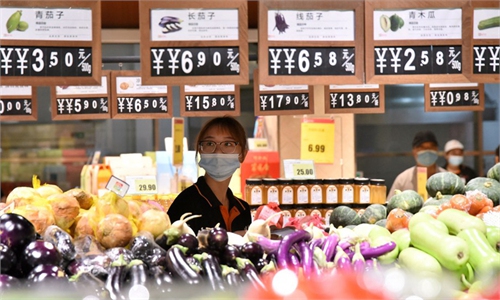China’s CPI, PPI growth slows in January, leaving room for further monetary easing amid headwinds: analysts

CPI Photo: VCG
China's consumer price index (CPI) rose 0.9 percent year-on-year in January, slower than the one percent rise expected by the market and a further slowdown from1.5 percent in December last year, official data showed Wednesday.
According to the National Bureau of Statistics, pork prices declined by 41.6 percent year-on-year, 4.9 percentage points lower than in December, based on the high base in 2021. Pork prices alone dragged down the consumer price index by 0.96 percentage points.
Consumer prices remained stable on the whole thanks to government efforts to ensure stable market supply ahead of the Spring Festival, Dong Lijuan, senior statistician at the NBS said.
The producer price index rose 9.1 percent from a year earlier, NBS data showed on Wednesday, weaker than economists' forecasts of a 9.5 percent increase and down from 10.3 percent in December 2021.
Factory inflation has moderated in recent months from a 26-year high in October last year, after the central government intervened to stabilize high raw material costs and address an acute energy power crunch.
Prices for coal, steel and other industries fell in January, driving down the overall price of industrial products, Dong said.
Low levels of inflation means there will be more room for easing of monetary policy in the face of mounting headwinds impacting the Chinese economy, Bai Ming, deputy director of the International Market Research Institute at the Chinese Academy of International Trade and Economic Cooperation, told the Global Times on Wednesday.
Bai cautioned that loosened monetary policy and the price hikes for commodities mean that the upward pressure on costs will remain strong in the future. "We should also be alert to the transmission of a high inflation pressure globally," Bai said.
US producer prices jumped more than expected at the start of the year. The producer price index, rose 1 percent in January - the biggest gain in eight months. The data came on the heels of another alarming inflation report, which last week showed US consumer prices climbing at the fastest annual pace in 40 years, at 7.5 percent.
The slowdown in CPI growth in China also reflected a weaker-than-expected consumption situation across the country, observers said.
Hot spots for consumption are not concentrated, and purchasing power of the general public is relatively weak, Bai said, suggesting more stimulation from the consumption side to pump up the economy may be needed.
Global Times


